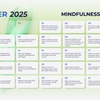Reduce Aggression, Impulsivity, and Disruptive Behaviors in the Classroom

In the realm of student success and well-being, addressing factors that hinder personal growth and academic achievement is paramount. Aggression and impulsivity are among the challenges that impede a student's journey toward success. This article highlights the significance of reducing aggression and impulsivity for the betterment of student well-being and academic excellence while diving into how TouchPoint Solutions presents an innovation that aligns perfectly with this theme.
Aggression and Impulsivity
Aggression and impulsivity are behavioral traits observed in students that can have significant impacts on their personal, academic, and social development. Aggression refers to behaviors that are intended to harm, intimidate, or provoke others, often stemming from a heightened emotional response to various triggers, which can eventually escalate into physical aggression or verbal hostility, hindering effective communication and interpersonal relationships.
On the other hand, impulsivity involves acting without careful consideration of the consequences, often driven by immediate emotional reactions. Impulsive behaviors can lead to hasty decision-making, difficulty in managing emotions, and challenges in maintaining self-control. Both traits can undermine a student's ability to engage effectively in learning, navigate social interactions, and make constructive choices for their future.
Why is it important to reduce aggression, Impulsivity, and disruptive behaviors in the classroom?
Aggression and impulsivity can inflict significant harm on students' success and overall well-being, warranting proactive measures for mitigation. When unchecked, these behaviors can disrupt academic progress, erode interpersonal relationships, and create an environment that hampers effective learning. The impulsive reactions brought about by heightened emotional responses can lead to poor decision-making, affecting students' ability to navigate complex situations both in and out of the classroom. Moreover, the toll of such behaviors isn't solely academic – they can also hinder the development of vital life skills, making it challenging for students to communicate effectively, work collaboratively, and manage stress constructively.
Addressing aggression and impulsivity is not only essential for personal growth but also for fostering a positive educational journey. By diminishing these tendencies, students can create a more conducive environment for their own success, well-being, and overall quality of life. This proactive approach equips students with essential tools to regulate emotions, communicate constructively, and thrive academically and socially, ensuring they are better prepared to face the challenges that life and learning may present.

The Impact on Student Success
Aggression and impulsivity can profoundly affect a student's overall success. They can lead to strained relationships with peers and educators, hinder effective communication, and hinder the development of crucial life skills. Additionally, these behaviors might result in disciplinary actions that distract from educational pursuits. By addressing these challenges, students can foster a conducive environment for personal growth and academic accomplishment.
Strategies for Reduction
- Emotional Intelligence Training: Awareness and implication of emotional intelligence training in educational curricula can equip students with tools to understand and manage their emotions. This empowers them to navigate challenging situations with heightened self-awareness.
- Conflict Resolution Workshops: Offering workshops focusing on conflict resolution and effective communication gives students the skills to handle disagreements constructively, reducing the likelihood of impulsive reactions.
- Mindfulness Practices: Introducing mindfulness techniques in schools promotes self-regulation and impulse control. Mindfulness encourages students to pause and reflect before responding, leading to more thoughtful actions.
- Peer Support Networks: Creating peer support networks fosters a sense of belonging and allows students to share their experiences. These networks can offer guidance on managing aggression and impulsivity.
- Collaborative Learning: Incorporating group projects and collective learning experiences encourages teamwork, empathy, and understanding. This collaborative approach can reduce aggressive tendencies and enhance emotional well-being.
Using TouchPoint Solutions in Reducing Aggression, Impulsivity, and Disruptive Behaviors
The TouchPoint Solutions wearable devices utilize Bi-Lateral Alternating Stimulation Tactile (BLAST) technology, which is rooted in neuroscience. When activated, TouchPoints emit gentle vibrations that have been shown to activate the parasympathetic nervous system. This activation triggers what is commonly referred to as the "rest and digest" response, promoting a sense of calmness and reducing stress-related physiological responses such as elevated cortisol levels.
Scientifically, this approach capitalizes on the body's natural ability to regulate itself through the stimulation of certain pressure points. The vibrations emitted by TouchPoints™ stimulate these pressure points, promoting a rapid relaxation response that helps users regain emotional balance during tense situations. By addressing the physiological aspects of stress and emotional regulation, TouchPoint Solutions aligns seamlessly with strategies aimed at reducing aggression and impulsivity, paving the way for improved student success, interpersonal relationships, and overall well-being.
TouchPoint Solutions for students
TouchPoint Solutions offers a science-backed innovation that holds promise in reducing aggression and impulsivity among students, ultimately enhancing their overall success and well-being. By integrating TouchPoints™ into a student's daily routine, schools can contribute to a positive and focused learning environment. These devices are particularly beneficial during exams, presentations, and other high-pressure situations that might trigger impulsive behavior.
Conclusion
As educators and institutions strive to create an environment conducive to student success and well-being, addressing aggression and impulsivity becomes essential to this journey. By adopting strategies that foster emotional intelligence, conflict resolution, and mindfulness, schools can help students thrive both academically and personally. TouchPoint Solutions adds an extra dimension to this effort, offering a practical and innovative tool to aid in managing these challenges. Empower students to reduce aggression, enhance impulse control, and embrace a path toward greater success and well-being.
Discover the Empowering Innovation of The TouchPoint Solutions.
By promoting strategies to reduce aggression, impulsivity, and disruptive behaviors, educational institutions can contribute significantly to the holistic development of students. Explore the recommended approaches and harness the potential of TouchPoint Solutions to create a nurturing environment where students can thrive academically and personally.




